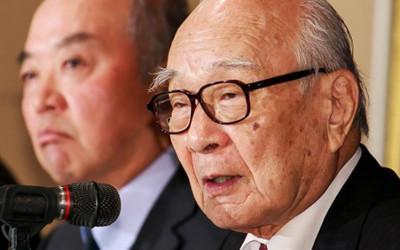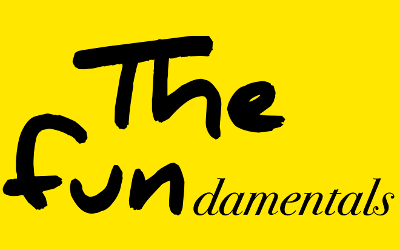Nobel peace prize awarded to Japanese atomic bomb survivors’ group for its efforts to free the world of nuclear weapons

The 2024 Nobel peace prize has been awarded to Nihon Hidankyo, a Japanese grassroots organisation created by survivors of the two US atomic bombs that were dropped on the cities of Hiroshima and Nagasaki in August 1945.
The Norwegian Nobel committee recognised the organisation “for its efforts to achieve a world free of nuclear weapons and for demonstrating through witness testimony that nuclear weapons must never be used again”.
Discussion of the bombings, which killed more than 100,000 Japanese people, was largely a taboo in the immediate post-war period. This was, in part, thanks to American press censorship in occupied Japan.
But, in 1954, an American nuclear weapons test at Bikini Atoll in the Pacific Ocean produced such extensive radioactive fallout that it affected a Japanese fishing boat, the Lucky Dragon, causing one death from radiation poisoning.
The Lucky Dragon incident prompted many of the atomic bomb survivors, who are known as the hibakusha, to speak out about their experiences. And it was within this context that Nihon Hidankyo was created in 1956.
Since then, the hibakusha have played an immeasurable role in activism against nuclear weapons worldwide. Their testimony, the Nobel committee said, has “helped to generate and consolidate widespread opposition to nuclear weapons around the world”.

The US detonated an atomic bomb over the Japanese city of Hiroshima on August 6 1945
Shutterstock
In 1975, for example, a group of hibakusha that included Setsuko Thurlow, a member of Nihon Hidankyo and a globally renowned campaigner against nuclear weapons, organised an exhibition on the atomic bombings at the Toronto public library.
This helped trigger the development of a significant anti-nuclear movement in Canada. By the early 1980s, tens of thousands of Canadians regularly demonstrated against their government’s support for US nuclear weapons.
Then, in 1984, another survivor of the Hiroshima bombing called Takashi Morita co-founded a hibakusha organisation based in São Paulo to share their stories and raise awareness in Brazil of the devastating consequences of nuclear weapons.
Growing awareness of the experiences of the hibakusha throughout the 1980s inspired Europeans to protest against the deployment of new nuclear missiles in their countries. The phrase “no Euroshima!” became a popular slogan for the European peace movement.
Nihon Hidankyo’s efforts have focused not only on sharing the experiences of hibakusha, but also using them to gain support for the abolition of nuclear weapons worldwide.
The organisation has been a key supporter of the UN treaty on the prohibition of nuclear weapons. This treaty, which entered in force in 2017 and has been signed by 94 countries, prohibits states from participating in any nuclear weapon activities.
The International Campaign for the Abolition of Nuclear Weapons – in which Setsuko Thurlow is a leading figure – was awarded the Nobel peace prize in 2017 for its efforts to achieve this legally binding prohibition of such weapons.
Still work to do
Within Japan, Nihon Hidankyo has worked to challenge the government’s position on nuclear weapons. The Japanese government is supportive of American nuclear weapons, despite the horrors witnessed in Hiroshima and Nagasaki, and depends on them as a deterrent against its several nuclear-armed neighbours.
Successive Japanese governments have insisted on the importance of nuclear weapons for the country’s national security. But it remains a controversial stance for many in Japan. Every Japanese school child typically visits Hiroshima or Nagasaki to learn about the nightmarish consequences of nuclear weapons.
The decision to award the Nobel peace prize to Nihon Hidankyo is particularly timely. In 2023, the world’s nine nuclear powers spent over US$91 billion (£69.5 billion) on nuclear weapons. And since Russia’s invasion of Ukraine in 2022, Russian president Vladimir Putin has repeatedly threatened to use his nuclear arsenal.
These concerning developments were acknowledged by the Nobel committee. When awarding Nihon Hidankyo with the prize, the committee said it was “alarming that today this taboo against the use of nuclear weapons is under pressure.”
The world’s nuclear powers – especially China and the US – are expanding and modernising their arsenals. North Korea is continuing to develop its nuclear weapons programme. And tensions are fast escalating between nuclear-armed Israel and near-nuclear Iran.
The threats posed by nuclear weapons are more apparent now than they have been at any time since the cold war. With barely 100,000 hibakusha alive today, it is imperative that we listen to their voices and their warnings.
Eirini Karamouzi, Senior Lecturer in Contemporary History, University of Sheffield and Luc-André Brunet, Senior Lecturer in Contemporary International History, The Open University
This article is republished from The Conversation under a Creative Commons license. Read the original article.
Contact our news team
For all out of hours enquiries, please telephone +44 (0)7901 515891
Contact detailsNews & articles

The FUNdamentals: Why fun matters more than we think
In a world that feels increasingly serious and pressured, fun can seem like a guilty pleasure — something optional, even frivolous. But what if fun isn’t an add on at all? What if it’s essential?